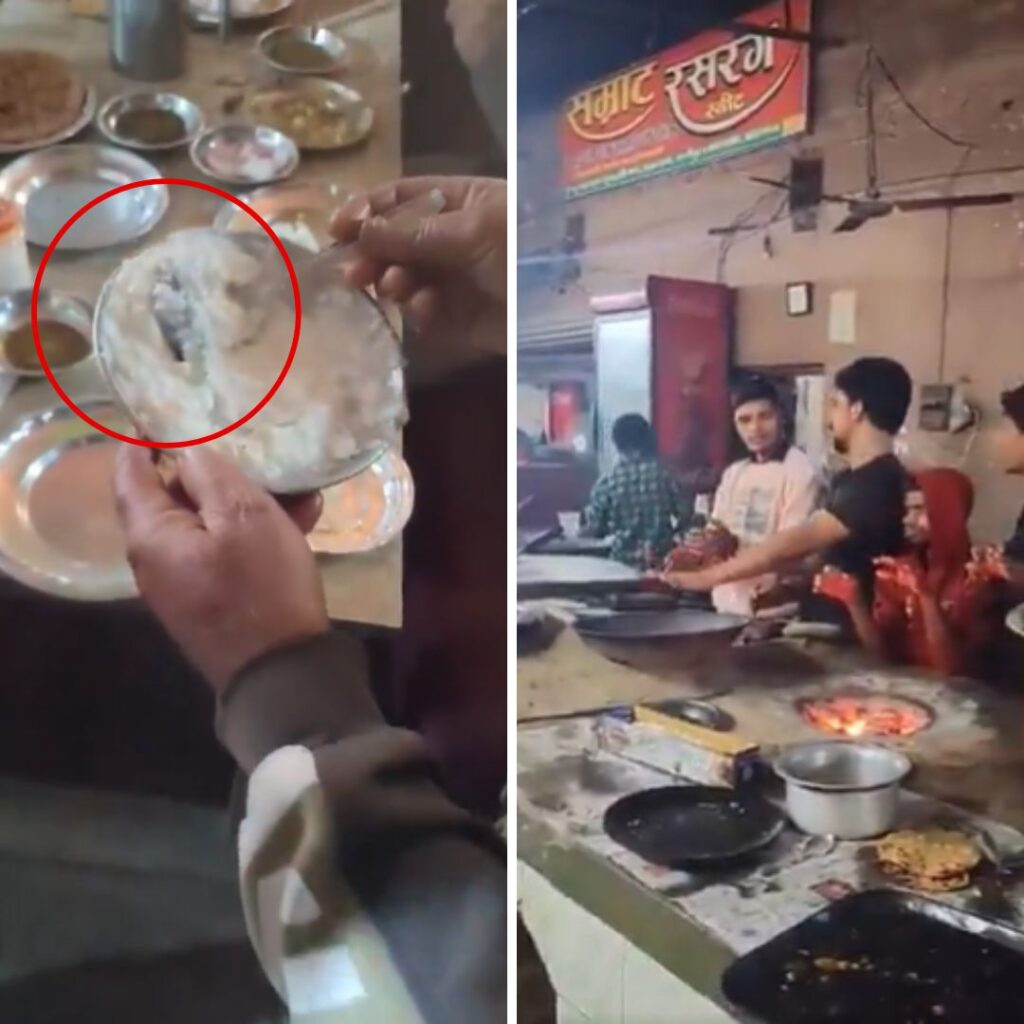From restrictions on touching utensils and entering puja rooms to the hush-hush around buying sanitary napkins, the taboos around menstruation in India seems a long way from being over.
With the stigma around menstruation rampant across the country, conversations around menstrual hygiene often take a back step. And when it’s a man that’s championing the cause, it gets all the more difficult to raise the subject with women, especially those belonging to the rural areas.
However, 31-year-old Mangesh Jha, popularly known as ‘Padman of Jharkhand’, has taken it upon himself to educate the women in the villages of Jharkhand. Undaunted by the challenges, the youngster has been on an advent to end the taboos around menstruation and to impart the habit of menstrual hygiene to rural women.
‘During the Ambubachi Mela, we worship Goddess Kamakhya to celebrate her menstruation – our mythology says that Goddess Durga bleeds for four days. We consider this as such an auspicious event and celebrate it with all fervour. But what about the Durga in our own homes – our wives, daughters, and sisters?’ asks Jha.
India has nearly 336 million menstruating women and adolescent girls. Of this, only 57.6 per cent of young Indian women (15-24 years) use a hygienic method of protection during their menstrual cycle, reported the National Family and Health Survey (2015-2016). In Jharkhand, only 49.6 of women followed hygienic menstrual practices and the figure stood at 39.4 in rural India.
According to data collected by the Ministry of Health, only 12% of women and girls have access to sanitary napkins. While there are several government-run programs to distribute sanitary pads, these often do not reach the grassroots.
Alarmed by these staggering figures, the youngster from Ranchi quit his job in 2013 to champion the cause of menstrual hygiene. Today, he has influenced nearly 1500 villages across Jharkhand and around 6000 households to practice menstrual hygiene.
The Beginning
Jha completed his graduation from Institute of Hotel Management, Bhubaneswar, in 2008. He then worked with hotels in Kolkata and Pune before moving to Ranchi in 2013.
‘While I had quite a flashy life there, in the back of my mind I always had an urge to work for the poor,’ he tells The Logical Indian.
While in Ranchi, he would travel around the city during weekends.
‘While Google had painted a pretty picture of Jharkhand, the reality was different,’ he recalls.
It was when he realised the plight of the villagers on the outskirts of Ranchi that the youngster decided to bid adieu to his job. While he started out by providing night school to the villagers, he soon began helping them with farming and employment.
As he got more involved with the villagers, he was alarmed to find out that most women used grass, sand, ash and even cow dung mixed with husk as pads during menstruation. Back then, Jha barely knew about menstruation or what a sanitary pad even looked like.
He then went home and told his mother about his interest in spreading awareness about menstrual hygiene.
‘My mother didn’t speak to me for seven days when I told her about my decision,’ Jha recalls.
However, once Jha explained to her about the predicament of the villagers, his mother was the first to extend a hand of support. While his mother and sister helped him understand menstruation better, he researched about ways to help.
Spreading Awareness
‘I wanted to ensure that the people understood why it was necessary to use sanitary pads. Only then would they use one,’ Jha says.
However, initiating a conversation with the women about menstruation was no easy task. While some refused to talk to him, others would not use the pads he offered.
Gradually, Jha was able to get the women to be comfortable around the topic, and the rest followed.
‘In Jharkhand, around 6 out of 10 women are suffering from some kind of uterus disease. Recent surveys also show that unhygienic menstrual practices are also a reason for cervical cancers. I used all these data to make them understand the importance of menstrual hygiene,’ he explains.
Jha, however, soon realised how expensive pads were.’I realised that I couldn’t afford to buy them for everyone,’ he says.
His mother then helped him out by stitching pads herself, using fine cotton and muslin cloths. These were then distributed to the villagers, free of cost.
Today, several well-wishers and friends from across the country to help the youngster by supplying sanitary pads.
‘Whenever someone is interested in donating to my cause, I strictly ask them to not provide any financial assistance. Rather, I ask them to give me sanitary pads, books, stationery, or anything that may help the villagers,’ he says.
Jha’s awareness drives take part in three phases – the importance of menstrual hygiene and sanitary pads, how to use sanitary pads, and the disposal of sanitary pads.
The Darker Side Of Sanitary PadsWhile sanitary pads are crucial during menstruation, they pose a number of threats – environmental po…











